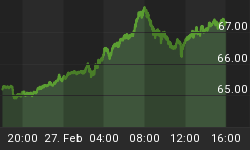The world of investing is quickly going private, with a flood of capital flowing into less visible, less-liquid assets. U.S. stock markets have shrunk dramatically over the past couple of decades, with total listed companies declining to just 3,672 from more than 7,300 two decades ago. Likewise, the number of startups choosing to go public every year has fallen by more than 70 percent.
Meanwhile, private equity (PE) firms keep getting stronger and stronger—and they show no sign of slowing down.
PE firms raised an all-time record of $453 billion in 2017, affording private money managers a cool trillion dollars for use in acquisitions. By comparison, IPOs in the country only managed to raise $49 billion.
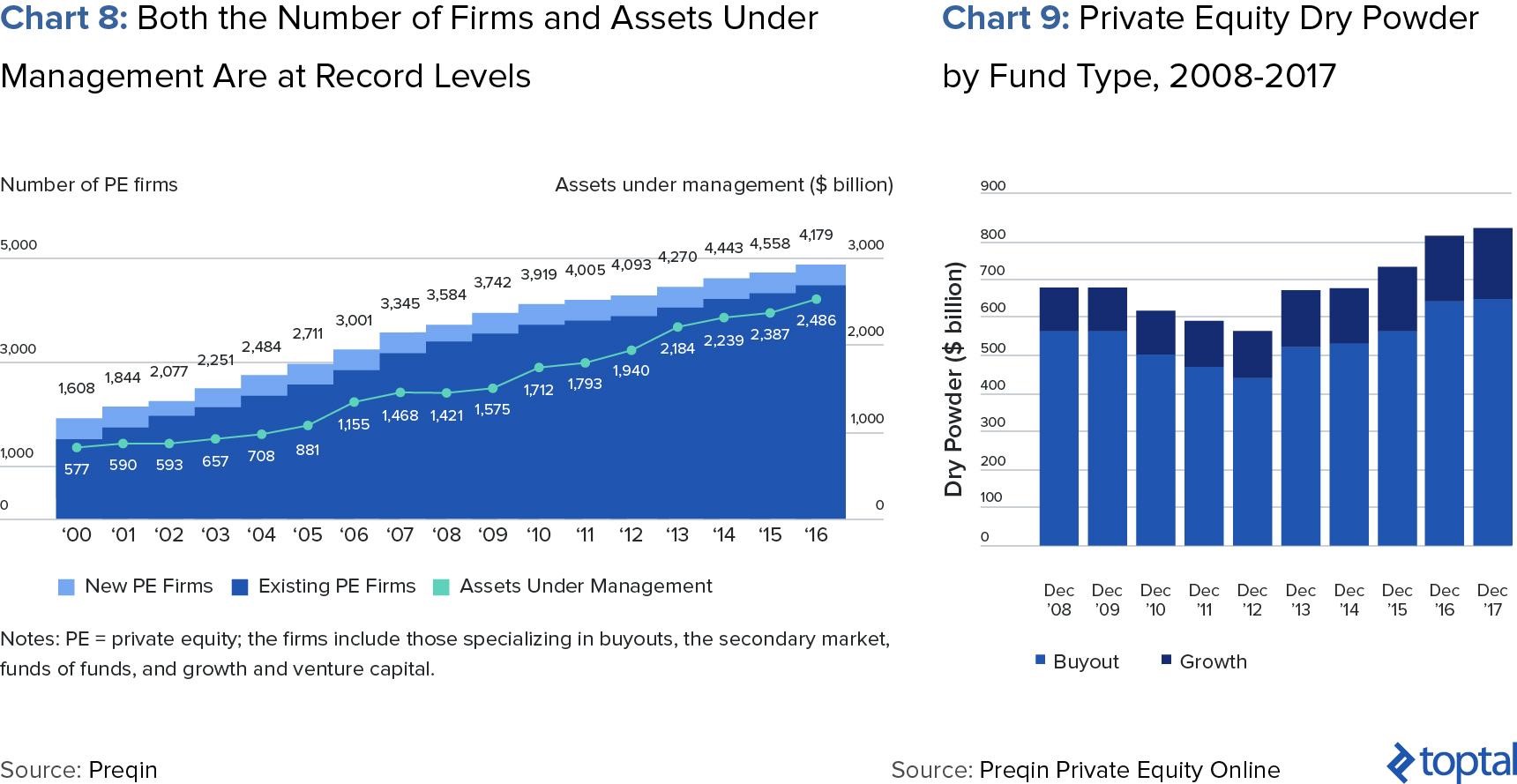
(Click to enlarge)
Source: Toptal LLC
Private companies like Uber and Airbnb have cited unfavorable regulation and lengthy listing processes for their reluctance to list on public markets, while others like Telegram have turned to ICOs and token sales.
But startups preferring a PE takeover to a public listing is just part of the stock market conundrum. Listed companies have also been leaving public exchanges in droves. Delistings as a result of PE deals have remained elevated since the dotcom bubble and the more recent financial crisis.
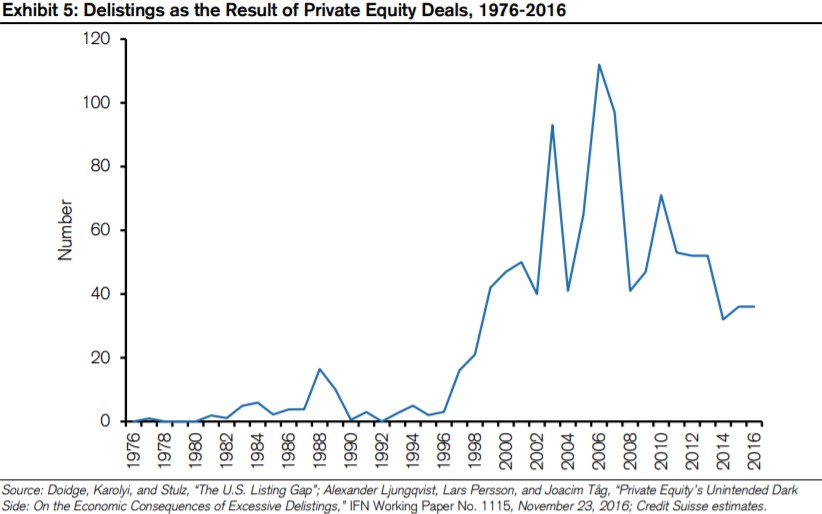
(Click to enlarge)
Source: CNBC
A big chunk of that money has been flowing to large PEs such as Apollo, Blackstone, KKR and Carlyle. Which probably makes a lot of sense going by the historical returns of the sector, with big firms netting much better returns for investors than their smaller brethren.
It's difficult to get performance figures for the PE universe since only a handful are publicly listed. Additionally, one of the commonly used metric to measure PE performance, IRR (Internal Rate of Return), is not wholly reliable since PE firms can game the system by cleverly timing their distributions to inflate IRRs. Related: How Gold Could Benefit From Soaring U.S. Debt
Nevertheless, a 2017 study by the Center for Economic and Policy Research found that the average PE buyout fund has historically outperformed S&P 500 by about 2.5-percentage points. These returns are, however, heavily skewed in favor of large PE firms, with the top quartile outperforming the S&P 500 by a considerable margin.
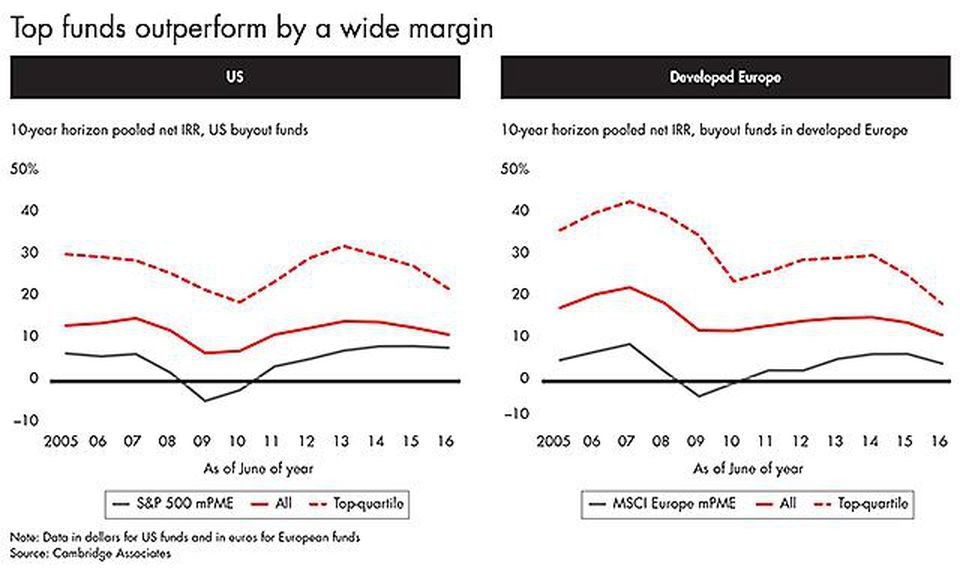
(Click to enlarge)
Source: Forbes, Bain Insights
Fat Dividends
Apart from high internal returns, another attraction is that PE firms have been paying a lot more cash to investors than stock markets. These payouts typically come after PE firms sell their assets through outright takeovers, debt dividends or IPOs.
Stock markets tend to fall during a wave of PE asset sale. It's not that PE firms cause stocks selloffs directly; rather the buyout model help as PE firms to time their sale so that they sell most of their assets when prices are topping out. PE asset sales are therefore a good harbinger for stock market investors.
Indeed, Business Insider reported a huge wave of recapitalization by PE firms in late 2017. Recapitalization is an ingenious process through which PE companies make money by stripping capital out of their holdings by paying out special dividends that are funded by leveraged loans. This happened at the height of the bull market and might have portended the current stock weakness.
Related: New Rules Challenge Social Media Censorship
The sale process itself takes months so there's usually a gradual buildup for a couple of years before the selling spree kicks in. This happened in 2007 prior to the 2008 market crash and, worryingly, PE sales have been building up in eerily similar fashion.
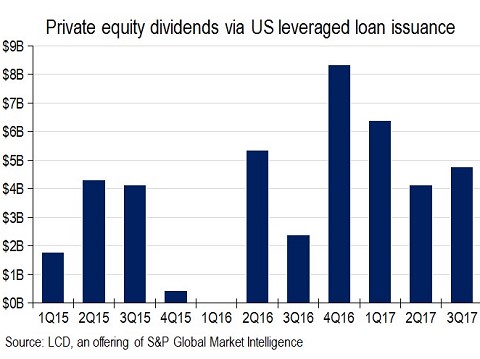
(Click to enlarge)
Source: Business Insider
By Alex Kimani for Safehaven.com
More Top Reads From Safehaven.com:




